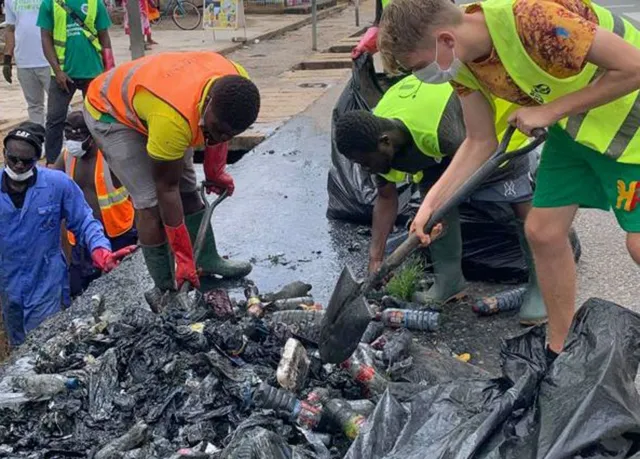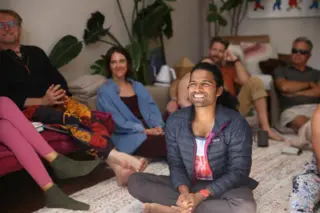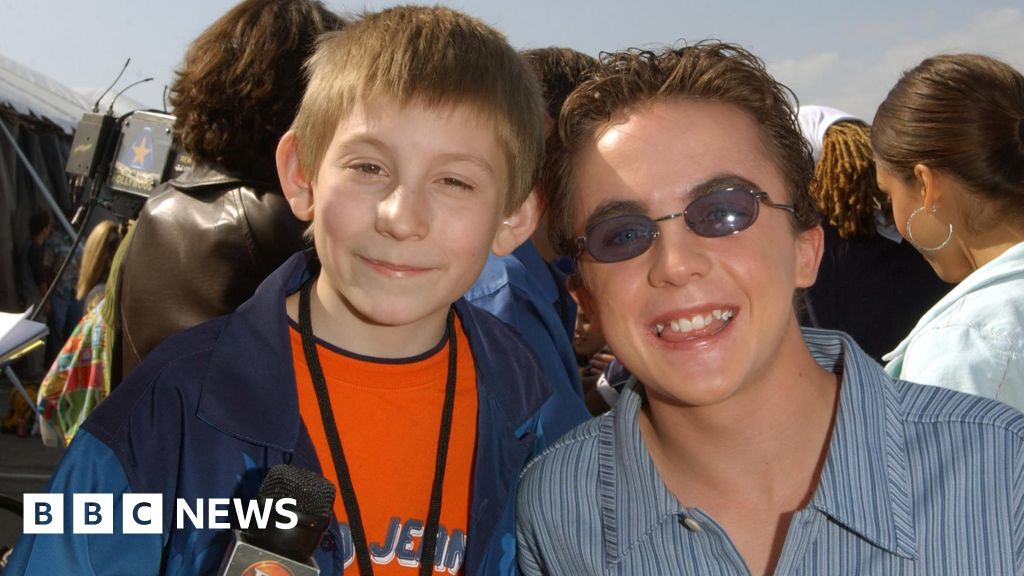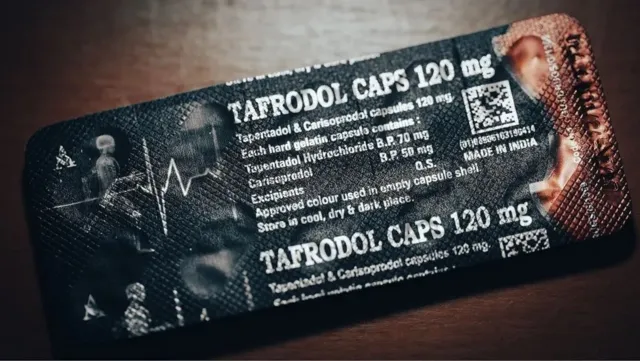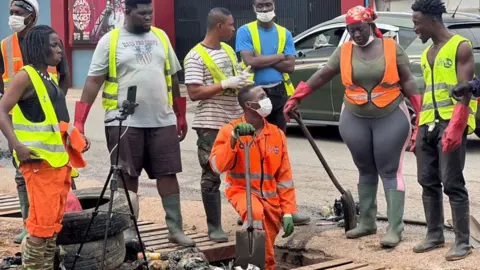 Buz Stop Boyz
Buz Stop BoyzKnown as Buz Stop Boys, a group of mostly young professionals and tradespeople are driving a new wave of civic responsibility in Ghana, picking up brooms and shovels to clean up the mounds of rubbish that are an eyesore in cities and towns across the country.
Their initiative has won the admiration of local celebrities and politicians – and even caught the attention of some UK teenagers who flew to the capital, Accra, to join the clean-up.
“Our goal is not just to clean the streets but to change mindsets,” Buz Stop Boys leader Heneba Kwadwo Sarfo told the BBC.
“If we can make people understand that keeping their environment clean benefits everyone, we’ll have a cleaner, healthier, and prouder Ghana.”
About 12,700 tonnes of solid waste is generated in Ghana each day, with only 10% disposed of properly.
Fed up with the filth and flooding it causes, Buz Stop Boys go around Greater Accra two to four times a week to clear clogged drains and gutters, pavements and roads, as well as to cut over-grown grass.
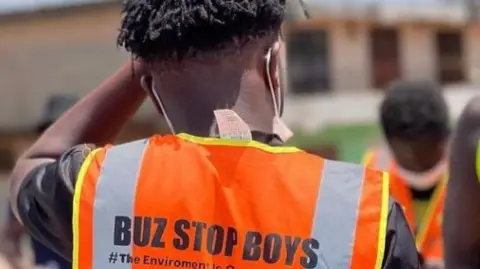 Buz Stop Boyz
Buz Stop BoyzThe number of volunteers will vary, depending on who has spare time that day.
A civil engineer, Mr Sarfo formed the group in July 2023 with just five people. He called it Buz Stop Boys, knowing the name would resonate with the public.
“The rich and poor, everybody knows what a bus stop is,” Mr Sarfo said.
His small-scale initiative has now blossomed into a movement, with more than 40 men and women – from midwives to carpenters to military officers – joining.
“Social media has been key in getting more people to join our movement,” Mr Sarfo said.
“Through our videos, we’ve been able to change the mindset of some people, but there’s still a lot of work to do.”
It also led to a group of UK students visiting Ghana during their summer break to help with a clean-up operation in Ablekuma, an area in Accra notorious for its waste disposal issues.
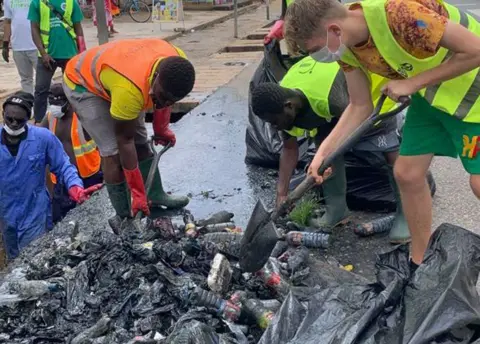 Buz Stop Boys
Buz Stop BoysMr Sarfo saw their visit as an inspiration for more locals to get involved.
“Don’t sit back at home and say you don’t care. One thing is key, without [the] environment we are useless, we are nonentities, and we can’t survive on this planet,” he said.
Popular musician and human rights activist Sister Derby has thrown her weight behind Buz Stop Boys, praising the activists on her Instagram and X accounts.
She told the BBC that she had been touched by their “pure selflessness”, and she and her brother had one day joined them to clean a stretch of a street market in the heart of Accra.
Dancehall star and businessman Shatta Wale has also rallied behind the group, helping raise 30,000 cedis ($1,830, £1,415) during a live TikTok.
“These boys are the real heroes. They are doing what most of us are too busy or too proud to do. If we all helped them, imagine how beautiful Accra would be,” he said.
The donations have been bolstered by those of politicians.
Former President John Mahama – who is making a fresh bid for power by contesting elections due in December under the banner of the opposition National Democratic Congress (NDC) – donated 50,000 cedis, while Transport Minister Asensu Boakye – who comes from the ruling New Patriotic Party (NPP) – gave 10,000 cedis.
Welcoming the donations, Mr Sarfo said the cash was used to fund their activities – including paying for rubbish disposal and buying fuel for their tricycle to transport rubbish to a refuse site.
Politically non-partisan, the Buz Stop Boys’ sole focus is on realising their vision of a cleaner Ghana – one street at a time.
“Individuals should take up initiatives because waiting for government hasn’t worked over the decades and the records also show that in the event of an environmental disaster we as citizens suffer the most,” Mr Sarfo said.
“It is therefore important for us to rise and help ourselves.”
Mark Wilberforce is a freelance journalist based in London and Accra.
More BBC stories on Ghana:
 Getty Images/BBC
Getty Images/BBC